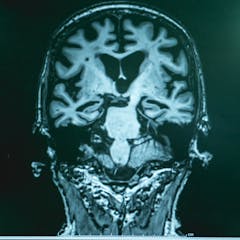
Articles sur Brain health
Affichage de 1 à 20 de 42 articles

Many elite athletes are encouraged to have baseline concussion tests, so should children playing junior sports do the same?

Regardless, there’s no doubt that sleep is important for the brain.

A new study shows that it is possible to reduce the symptoms of amyotrophic lateral sclerosis by reducing the inflammation caused by immune cells in the brain.

Several high-profile athletes with concussion histories have been forced to retire on medical advice. But what’s the process that guides them to that difficult decision?

For decades, some sports have fostered a win-at-all-costs culture, with concussion often an afterthought. But there are signs that attitude is changing.

The traditional Japanese diet contains plenty of rice, fish, pickles, green tea, soybeans, miso and shiitake mushrooms.

Many dieters vouch for the effect of intermittent fasting on their body – but what about their brain?

Research suggests certain gut bacteria may have a role in helping us maintain cognitive function as we age. A celatus is one of these.

New guidelines from the Australian Institute of Sport recommend players in youth and community sport are sidelined for three weeks after a concussion. Here’s why.

Caffeine is the most consumed psychoactive substance globally.

Here’s why a healthy balance of microbes is important for astronauts when they travel to Mars and beyond.

Racial threats and slights take a toll on health, but the continual invalidation and questioning of whether those so-called microaggressions exist has an even more insidious effect, research shows.

Lifestyle-related dementia risks are complex, with factors like sleep, exercise, diet and social contact interacting with things like cognitive reserve, neuroplasticity and inflammation in the body.

This study shows at least two different mechanisms lead to cognitive decline – both in healthy people and people with Alzheimer’s.

Concussions can teach researchers a great deal about how the brain recovers after injury and offer insights into how people can promote brain health throughout their lives.

Disorders such as Alzheimer’s and epilepsy are difficult to diagnose with only occasional doctor visits. A new approach would allow fathering of extensive real-world data directly from patients.

Alzheimer’s disease is the most prevalent form of dementia. This is a term used to describe a range of symptoms linked to the decline in brain function with age.

Our study revealed that people who nap frequently have larger brain volume.

We live in a world where we frequently do not get enough sleep, but we need sleep if our brains are going to stay healthy and function efficiently.

Researchers are trying to understand whether ultraprocessed foods erode brain health in the aging process.
